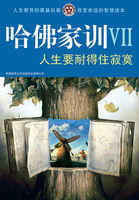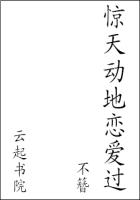Would he wish to see a more complete monopoly of public instruction given to the Established Church? Could any government do more to train the people in the way in which he would have them go? And in what did all this training end? The Report of the state of the Province of Canterbury, delivered by Laud to his master at the close of 1639, represents the Church of England as in the highest and most palmy state. So effectually had the Government pursued that policy which Mr. Southey wishes to see revived that there was scarcely the least appearance of dissent.
Most of the bishops stated that all was well among their flocks.
Seven or eight persons in the diocese of Peterborough had seemed refractory to the Church, but had made ample submission. In Norfolk and Suffolk all whom there had been reason to suspect had made profession of conformity, and appeared to observe it strictly. It is confessed that there was a little difficulty in bringing some of the vulgar in Suffolk to take the sacrament at the rails in the chancel. This was the only open instance of nonconformity which the vigilant eye of Laud could detect in all the dioceses of his twenty-one suffragans, on the very eve of a revolution in which primate, and Church, and monarch, and monarchy were to perish together.
At which time would Mr. Southey pronounce the constitution more secure: in 1639, when Laud presented this Report to Charles; or now, when thousands of meetings openly collect millions of dissenters, when designs against the tithes are openly avowed, when books attacking not only the Establishment, but the first principles of Christianity, are openly sold in the streets? The signs of discontent, he tells us, are stronger in England now than in France when the States-General met: and hence he would have us infer that a revolution like that of France may be at hand. Does he not know that the danger of states is to be estimated, not by what breaks out of the public mind, but by what stays in it? Can he conceive anything more terrible than the situation of a government which rules without apprehension over a people of hypocrites, which is flattered by the press and cursed in the inner chambers, which exults in the attachment and obedience of its subjects, and knows not that those subjects are leagued against it in a free-masonry of hatred, the sign of which is every day conveyed in the glance of ten thousand eyes, the pressure of ten thousand hands, and the tone of ten thousand voices? Profound and ingenious policy! Instead of curing the disease, to remove those symptoms by which alone its nature can be known! To leave the serpent his deadly sting, and deprive him only of his warning rattle!
When the people whom Charles had so assiduously trained in the good way had rewarded his paternal care by cutting off his head, a new kind of training came into fashion. Another government arose which, like the former, considered religion as its surest basis, and the religious discipline of the people as its first duty. Sanguinary laws were enacted against libertinism; profane pictures were burned; drapery was put on indecorous statues; the theatres were shut up; fast-days were numerous; and the Parliament resolved that no person should be admitted into any public employment, unless the House should be first satisfied of his vital godliness. We know what was the end of this training.
We know that it ended in impiety in filthy and heartless sensuality, in the dissolution of all ties of honour and morality. We know that at this very day scriptural phrases, scriptural names, perhaps some scriptural doctrines excite disgust and ridicule, solely because they are associated with the austerity of that period.
Thus has the experiment of training the people in established forms of religion been twice tried in England on a large scale, once by Charles and Laud, and once by the Puritans. The High Tories of our time still entertain many of the feelings and opinions of Charles and Laud, though in a mitigated form; nor is it difficult to see that the heirs of the Puritans are still amongst us. It would be desirable that each of these parties should remember how little advantage or honour it formerly derived from the closest alliance with power, that it fall by the support of rulers and rose by their opposition, that of the two systems that in which the people were at any time drilled was always at that time the unpopular system, that the training of the High Church ended in the reign of the Puritans, and that the training of the Puritans ended in the reign of the harlots.
This was quite natural. Nothing is so galling to a people not broken in from the birth as a paternal, or, in other words, a meddling government, a government which tells them what to read, and say, and eat, and drink, and wear. Our fathers could not bear it two hundred year ago; and we are not more patient than they.
Mr. Southey thinks that the yoke of the Church is dropping off because it is loose. We feel convinced that it is borne only because it is easy, and that, in the instant in which an attempt is made to tighten it, it will be flung away. It will be neither the first nor the strongest yoke that has been broken asunder and trampled under foot in the day of the vengeance of England.
How far Mr. Southey would have the Government carry its measures for training the people in the doctrines of the Church, we are unable to discover. In one passage Sir Thomas More asks with great vehemence, "Is it possible that your laws should suffer the unbelievers to exist as a party? Vetitum est adeo sceleris nihil?"
Montesinos answers: "They avow themselves in defiance of the laws. The fashionable doctrine which the press at this time maintains is, that this is a matter in which the laws ought not to interfere, every man having a right, both to form what opinion he pleases upon religious subjects, and to promulgate that opinion."















